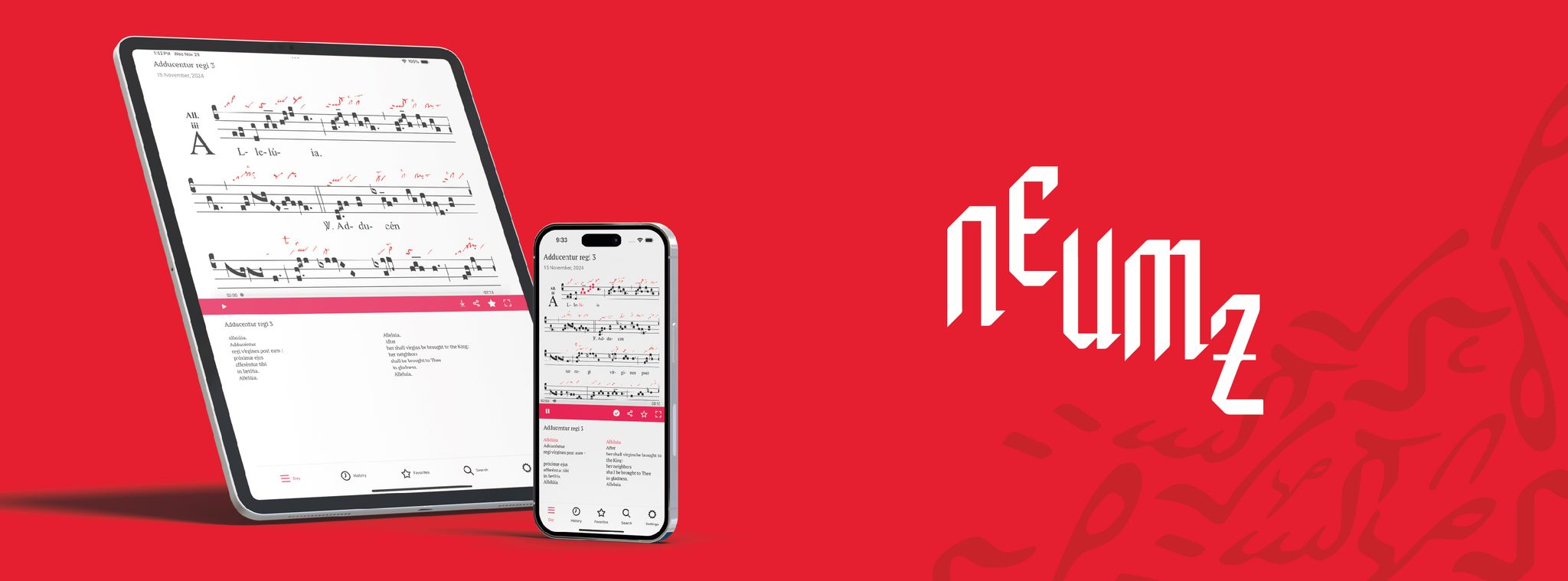Rorate Caeli Desuper 1
Today we celebrate the Fourth and last Sunday of Advent. To celebrate this Sunday, we at Neumz have chosen the Introit chant, Rorate caeli. The text is taken from the book of the prophet Isaiah 45, verse 8, the great prophet of Advent, and relates what the Lord has heard Cyrus say to him, whom he will raise up to be his Christ, to save the people and rebuild the city and the temple. At the vision of this saviour, beyond whom he sees the Messiah and his eternal work, he is transported and, interrupting his prophecy, launches his ardent desire towards heaven for the coming of the two deliverers. He does so in the poetic form of the dew that makes the plant sprout, symbolising the divine action that will make Cyrus and Christ perfect saviours.
It is worth noting that St Jerome himself made two modifications to the original Hebrew text. In Isaiah 45, v.8 we note two important variations: "justum", the Just, has taken the place of "justitiam", justice, and "Salvatorem", the Saviour, has replaced "salvationem", salvation: the concepts of justice and salvation are incarnated in the person of the Just, the Saviour.
In the liturgical sense, it is the Church that calls the Messiah. We must not change anything in the image of the prophet, but give it all its divine meaning. The dew called down from heaven is the fertilising action of the Holy Spirit; the earth is Our Lady, the flower of the human race, which opens at the top of the trunk of Jesse and which, fertilised under the mysterious shadow of the Spirit of the Most High, will produce its divine fruit: the Word made flesh.
As for the melody, composed in mode 1, it is a fervent prayer of two phrases that oppose or complete each other: the first is addressed to heaven, since that is where the Saviour comes from; and the second is addressed to earth, since the Saviour is also a gift of the earthly form, thanks to Mary. The incipit of the piece begins with the imperative Rorate, proclaimed with a formula typical of the first mode: a formula defined "of accent", but which in reality is not simply limited to highlighting a tonic syllable. Rather, it has a truly expressive timbre of its own, declared from the outset, which colours the whole piece with fervent joy.
The melodic movement of the first phrase, which moves between A and D sharp, is an admirable impulse of the soul that carries its desire, as high as possible, up to the fertile clouds from which the heavenly dew will come, then descending softly and peacefully as the Just One to whom it sings will descend. A series of "ostinatos" can be heard. Just as desuper (from on high), the melodic summit of the piece, moves in the treble range, pluant justum (pour out the Just) is performed in a descending line through a "rain" of notes. The supplication is ardent in caeli, in the quilisma of desuper, in pluant: but there is no anxiety, doubt or anguish; on the contrary, a great serenity and a discreet joy mingle throughout this prayer; the joy of the Church who knows, for she is already enjoying it, all the happiness there is for her in this fecund rain she requests.
The second phrase has less momentum, moving between D and A, except in the first clause. After the ardent start of the melody in aperiatur, underlined by a beautiful chiasmatic movement, expressing its desire for the earth to be opened so that our Saviour may spring forth, the melody returns to the fundamental D, rests on the earth, and it is around the fundamental D, the solidity of that modal degree where the melody that adorns the expression germinet Salvatorem will spring forth, a melody that bows reverentially in the grave realm to attend such an ineffable birth.
